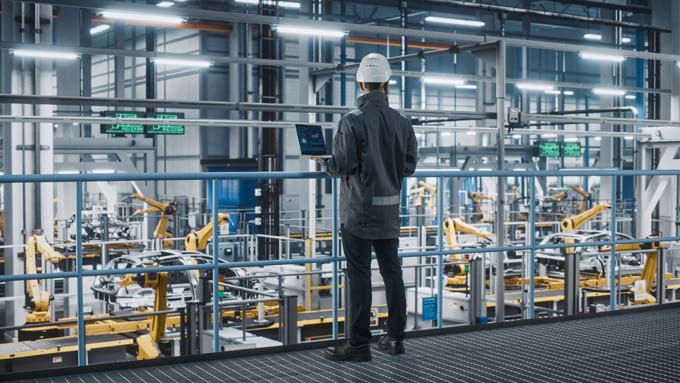Employee retention
A sustainable corporate culture and employee retention are currently the most important topics on the agenda of HR managers. A good working atmosphere is the biggest contributor to skilled workers remaining loyal to their employer, as a new study shows.

Employee retention is currently one of the top topics in HR. Loyalty and faithfulness to one's employer, which was taken for granted a decade ago, is being rediscovered as a corporate goal. After all, finding suitable highly qualified employees remains difficult. The main reason for bottlenecks in the recruitment of experts, managers and specialists is demographic change. However, another cost factor is that companies poach each other's talent, which then moves to the competition with their know-how. Company managements are therefore increasingly looking for ways and means of retaining their employees in the long term.
The topic of employee retention is therefore also the focus of the current HR Report 2012/2013, which is published jointly by the Institute for Employment and Employability (IBE) in Ludwigshafen and Hays AG. The empirical study was conducted for the second time. This time, 714 decision-makers from Germany (60 per cent), Switzerland (25 per cent) and Austria (13 per cent) took part in the survey, with the majority of respondents belonging to management or working as a manager either in HR or in a specialist department.
The most important tasks
As in the previous year, the company's decision-makers were asked which HR topics they considered to be most relevant. After the topic of strengthening and expanding leadership in the company had achieved the highest approval ratings in 2011, the promotion of a sustainable corporate culture took the top spot this time. As in the previous year, the retention of existing employees follows in second place. In medium-sized companies, this topic is even more important than in large companies, which focus more on talent management. The
Sustainable corporate culture
Promoting employability, establishing a work-life balance and attracting new employees follow in the next ranks.
Migration as a cost
Three quarters of the decision-makers surveyed consider employee retention to be very or extremely important. For employers, employee turnover is a significant cost factor. A specialist who leaves the company again after a short time is therefore a very sensitive topic: A new hire is associated with additional costs of six to twenty-four months' salary, depending on the calculation approach and career level. In Switzerland, there is also the fact that fluctuation is generally not viewed positively. In view of the country's manageable size and the correspondingly tighter market structures, particularly high demands are placed on continuity in this country.
The goal must therefore be to retain the best specialists, especially in the first few months after they start. Of course, in
Feeling integrated
This introductory phase is normal for a certain turnover rate, as both sides check whether the chemistry is right. After that, when considerable resources have already been invested in the employee, churn is unwelcome. Direct-entry college and university graduates, in particular, often leave a company within the first two years because they don't properly assess the job due to a lack of experience. It is true that, overall, it is more cost-effective to train your own employees than to recruit new staff - but that only applies if they don't jump ship again straight away.
Once you have been with a company for four to five years, you experience yourself as part of the entire company and leave less frequently. However, today's confusing or overly international company structures make the process of emotional identification more difficult. To feel integrated or at home, clear and binding corporate values and open structures are required.
Working atmosphere as the primary goal
The reasons why a skilled worker stays with a company are as varied as the individuals in it. Nevertheless, companies are looking for overarching strategies to retain their employees. Our study shows that a good working atmosphere, market-oriented remuneration and the employer's reputation are considered to be the most important tools. As in the previous year, the working atmosphere occupies the top spot, with approval at 93 percent, significantly higher than in the previous year (76 percent). (Graphic 1)
The second criterion, with a weighting of 77 percent (compared with 57 percent in the previous year), is pay. Regardless of how well the Swiss labor market compares with the rest of the EU, the media-driven climate influences value attitudes: The aspired high salary then often serves as a provision for possible financial shortfalls. On the third
Differences between young and old
As in the previous year, the good reputation of a company is in second place, although here too the approval rate has risen from 62 to 76 percent compared with the previous year.
Only then are flexible working time models (in third place in the previous year) and job security considered to be decisive factors in choosing an employer in the long term. This is followed by instruments for health promotion or work-life balance, company pension schemes and promotion and development programmes. Individual instruments were not even considered important by half of the respondents. Nevertheless, they should be considered as quality features and corporate advantages, especially under the aspect of increasing generational diversity. These include, for example, career prospects, social support and the possibility of a sabbatical, temporary part-time employment or time off.
Value diversity
The extent to which the above-mentioned instruments have an impact on retention depends on the respective employees and their age: as retirement tends to take place later, different age groups and generations with different socialisation backgrounds, values and aspirations are increasingly coming together. The increasing proportion of female employees also has an impact on the incentive system. For example, women generally attach more importance to flexible working models and the compatibility of work and family.
The fact that older employees feel more attracted to job security, health promotion measures and social care offers requires little explanation. Younger employees, on the other hand, favour market-oriented pay, the possibility of a sabbatical or working conditions that allow them to combine their career, education and leisure time.
What is the reality?
In practice, the incentive opportunities to retain employees are already being used to some extent, but are far from being exhausted. As many as 70 percent of respondents say that their company has a good working atmosphere. 69 percent consider wages to be in line with the market. In contrast, only 55 percent consider the reputation of their own company to be good.
IndividualValue
one. Flexible working models with a good work-life balance - the fourth most important aspect of employee retention - are offered by 70 percent of companies, according to their own statements. In Switzerland, company pension schemes are practically a matter of course.
However, there are differences in terms of company size and sector: large companies are able to take more comprehensive measures with regard to career opportunities, health promotion and social support than small and medium-sized companies. State-owned companies, on the other hand, provide security in long-term employment and promote work-life balance. In the industrial and service sectors, on the other hand, financial incentives are stronger.
The good working atmosphere
What is meant by a good working atmosphere and how does it serve to retain employees in the long term? A good working atmosphere depends on a variety of conditions. Culture, values, communication and the principles of a company as well as binding rules and individual appreciation form the central building blocks. The design of the workplace, feedback from management, remuneration, further training options, organisational and structural framework conditions increase efficiency and thus also improve the working environment. Furthermore, trust in the identity-creating corporate culture and brand is conducive to a good working atmosphere.
Cultural topics in the foreground
A sustainable corporate culture as the most important HR topic, a good working atmosphere as the most important measure for employee retention: cultural topics are high on the agenda of HR managers. A good work-life balance is also seen as even more important compared to the previous year. At the same time, however, the importance of remuneration in line with the market has also increased in connection with employee retention: In addition to cultural factors, a good salary obviously also represents a central building block for satisfaction. All in all, the study makes it clear that decision-makers are making increasing efforts to meet the wishes and needs of their employees. In view of demographic change and the prevailing shortage of skilled workers, such efforts are undoubtedly necessary.









